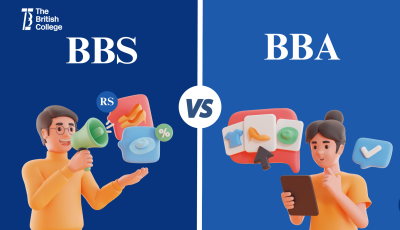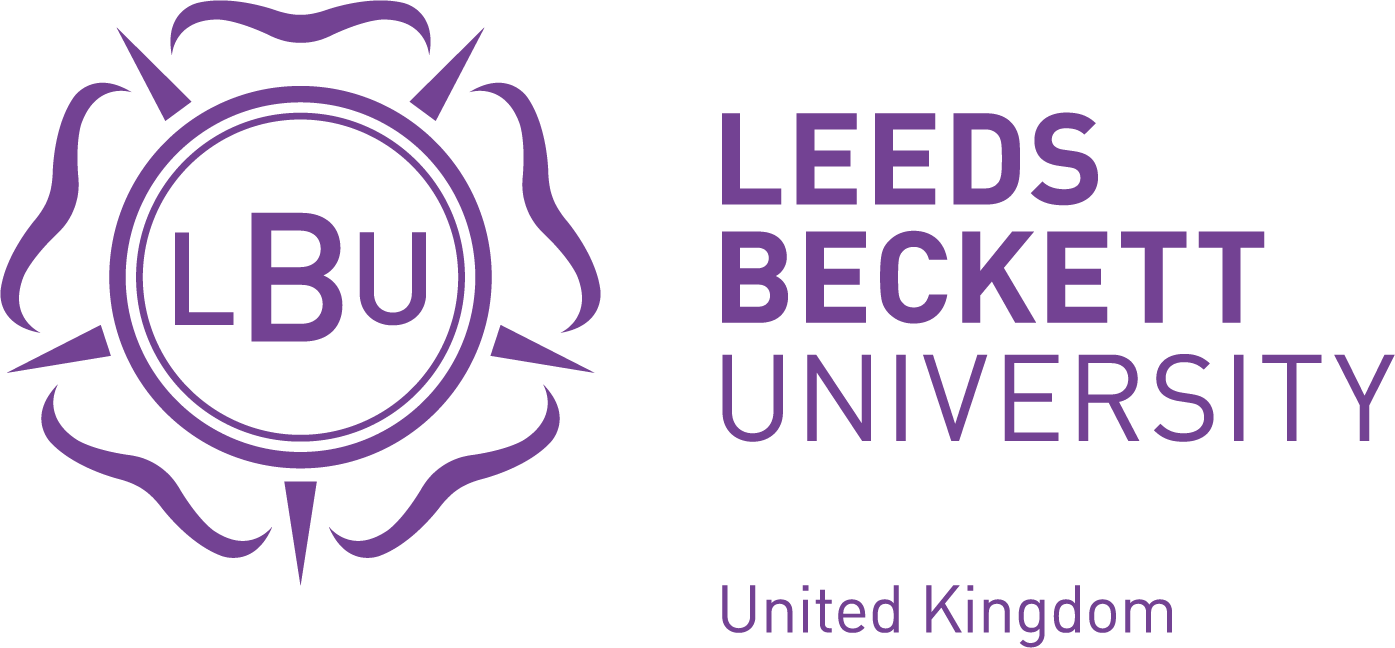What Makes Cambridge AS and A Level the Best Choice for Nepali Students in 2025?

Over 4,000 Nepali students appeared for the Cambridge International AS & A Level exams in June 2025, marking a remarkable 4% increase from the previous year. This surge reflects growing trust in Cambridge AS and A Level qualifications among students seeking international recognition and superior career prospects.
Furthermore, more than 48 Nepali students earned recognition for outstanding performance in these exams, proving that the Cambridge AS and A Level pathway can lead to exceptional academic success. This is why more families from Kathmandu, Pokhara, Chitwan, and beyond are turning to this international curriculum.
This comprehensive guide will demystify the Cambridge AS and A Level, comparing it with the traditional +2 system, highlighting the immense career advantages it offers, and providing a clear roadmap to your future. We will delve into every aspect, from the Cambridge A level exams to the A level duration, and why this is the smart choice for any ambitious student.
Cambridge AS and A Level Explained: Everything You Need to Know
What is A Level Qualification?
Simply put, a Cambridge A Level qualification is an advanced school-leaving certification studied after secondary education. The course is split into two levels: AS (Advanced Subsidiary) Level and A2 Level, collectively forming the full A Level, graded from A* (highest) to E (minimum pass).
Unlike Nepal’s +2 system, which is nationally focused, Cambridge A Levels are designed to meet international gold standards that prepare students for universities worldwide. This is why universities across the globe, including those in Nepal like Tribhuvan University and Kathmandu University, recognise the Cambridge A level qualification.
How Long is an A-level duration in Nepal
The A level duration is typically a two-year course. Students start with the Cambridge International AS Level in their first year, which serves as a foundation, and then progress to the A2, or full Cambridge A Level, in their second year. This provides a steady and manageable progression, allowing you to gradually build your knowledge and skills.
A key advantage of this A level duration is the flexibility it provides. Cambridge A level exams are held twice a year, in May/June and October/November. This gives you multiple opportunities to sit for your exams and to improve your grades if needed, without having to wait a full year.
AS Level vs A Level: Key Differences
The AS Level is the foundation year of the Cambridge programme, equivalent to the first half of a full A Level curriculum. The full Cambridge A Level is a more advanced qualification that requires the completion of both AS and A2 components, demonstrating mastery of advanced concepts and independent analytical thinking skills. In Nepal’s university credit system, the majority of colleges require a minimum of 3.5 credits, though some institutions require more but never less than 2.5 credits.
Why Choose Cambridge AS and A Level Over Traditional +2?

Making the switch to an international qualification might seem daunting, but it's a decision that will unlock doors you didn’t even know existed. The benefits of the Cambridge AS and A Level extend far beyond the classroom, giving you a distinct advantage in both your university applications and your future career. This is the essence of the British education system.
International Recognition and University Admission
A key reason for the rising preference for Cambridge A Levels in Nepal is their global acceptance. Locally, all universities, including Tribhuvan University and Kathmandu University, accept the Cambridge A level qualification for admission. Internationally, countries like the UK, US, Australia, and Canada recognise Cambridge qualifications for direct entry, often waiving additional tests like SAT or ACT in the US. This recognition simplifies admission and broadens students’ higher education choices abroad.
Career Advancement Opportunities
In Nepal’s growing job market, multinational companies and government sectors show a preference for candidates with Cambridge qualifications. AS and A Level programmes place strong emphasis on critical thinking, research methodology, and problem-solving skills, preparing students for competitive roles and internships. These skills not only improve employability but also open doors to advanced academic and professional pathways.
Subject Flexibility and Specialisation
Another advantage of studying Cambridge International AS and A Levels is the wide choice of subjects: over 55 in science, business, engineering, and liberal arts. Students can typically choose three full subjects plus English General Paper, facilitating tailored learning aligned with individual interests and career goals. This flexibility is absent in the traditional +2 system.
Cambridge A Level Exams: Structure, Grading, and Assessment
The examination and assessment process for the Cambridge AS and A Level is designed to be fair, comprehensive, and clear. It’s a system that truly measures your understanding rather than just your ability to memorise.
How Cambridge A Level Exams Work
The Cambridge A-level exams are held twice a year, in the May/June and October/November series, with results published in August and January, respectively. This schedule provides peace of mind and allows for retakes if necessary. The exam format typically includes a mix of question types, including multiple-choice, short-answer questions, and extended-response essays.
In addition to written exams, many subjects include a practical exam component or coursework evaluation. This ensures that you’re not just learning theory but are also developing hands-on skills. The assessment criteria are transparent and focus on your ability to apply knowledge, think logically, and present reasoned explanations.
Grading System and Credit Calculation
The grading system ranges from A* to E, with A* being the highest achievement. This clear scale helps both students and universities understand exactly where you stand academically. For University admission in Nepal, your A Level grades are converted into a credit system. While the majority of Nepali colleges require 3.5 credits, some may require more, but never fewer than 2.5.
Exam Preparation Strategies
Effective preparation is key to success in the Cambridge A-level exams. At a college like British Model College & Cosmos International College, you'll receive guidance on a structured study timeline, effective resource utilisation, and the importance of practice exams. Regular practice helps you become familiar with the exam format, manage your time effectively, and identify areas where you need to improve.
Popular Subject Combinations for Different Career Paths
The flexibility of the Cambridge AS and A Level curriculum means you can choose a subject combination that is perfectly suited to your career goals.

Science Stream: Medical and Engineering Pathways
For aspiring doctors and engineers, a science-focused Cambridge AS and A Level is the ideal starting point. Popular subject combinations include Mathematics, Physics, Chemistry, and Biology. This combination provides a strong foundation for admission to medical colleges and engineering universities, both in Nepal and abroad.
The practical focus of the Cambridge curriculum, with its emphasis on laboratory skill development and research methodology, prepares you exceptionally well for the rigorous entrance exams and demanding coursework of medical and engineering programmes.
Business Studies: Commerce and Management Focus
If you’re interested in the world of business, commerce, or management, a combination of Business Studies, Economics, and Accounting is a powerful choice. This pathway prepares you for an MBA and equips you with the skills needed to thrive in Nepal’s dynamic business environment.
You’ll learn about entrepreneurship, international trade, and the inner workings of financial markets. These subjects provide a robust theoretical framework and practical insights that are essential for future business leaders.
Liberal Arts: Humanities and Social Sciences
For those with a passion for critical analysis, social issues, and communication, the Liberal Arts stream offers a wide array of options. A combination of Psychology, Sociology, and Literature can set you on a path to a career in law, social work, media, or academia.
These subjects hone your critical thinking, persuasive writing, and communication skills, all of which are highly valued in a variety of professions. The emphasis on understanding human behaviour and societal structures gives you a unique perspective that can be applied to countless career opportunities.
Cambridge AS and A Level in Nepal: Colleges and Opportunities
While the qualification is international, the opportunities to pursue it are abundant right here at home. More than 20 colleges across Nepal offer the GCE A-Levels programme, providing a local option for a global education.
Top A Level Colleges in Nepal
Some of the top colleges offering both Science and Non-Science streams under the GCE A Levels programme in Nepal are:
- The British College Kathmandu
- Cosmos International College, Pokhara
- St Xavier’s College
- Ace Institute of Management
- Global College of Management
The British College in Thapathali, Kathmandu, stands as a premier institution for the Cambridge AS and A Level. With its state-of-the-art facilities, modern infrastructure, and highly qualified faculty, it provides an unparalleled learning environment. The college is not just a place to study; it’s a community where students from different cities across Nepal, like Biratnagar, Butwal, Chitwan, and Dharan, come together to learn, grow, and experience what’s “More Than A College”.
Admission Requirements and Process
The admission process for the Cambridge AS and A Level programme is designed to be accessible. Students who have completed their SEE/GCSE/CBSE or equivalent exams are eligible to apply. The process includes an entrance exam, which helps the college assess your academic readiness. Moreover, the A Level programme is equivalent to +2, PCL/ Diploma Levels or two-year Intermediate level studies. The admission intake generally occurs from April to May each academic year.
Investment and Scholarship Opportunities
While an international education may seem like a significant investment, the return on investment for a Cambridge AS and A Level is immense. The skills and opportunities it provides will pay dividends throughout your career.
The fee structure varies among colleges, with scholarships available for deserving students based on academic performance, financial need, and other criteria. Additionally, if you’re interested in studying at The British College, you can also try to acquire the A Levels scholarships. You can learn more about the TBC scholarship policy here.
Career Prospects After Cambridge AS and A Level
The Cambridge AS and A Level is not only about a qualification; it’s a gateway for your career. The skills and knowledge you gain will set you apart from your peers and open up a world of possibilities.

University Pathways in Nepal and Abroad
Direct university admission benefits eliminate the need for additional preparation courses or entrance examinations. The popular study abroad destination countries, including the UK, Australia, the USA, and Canada, recognise Cambridge qualifications for undergraduate admission. Even local universities such as TU, KU, PU, and private institutions accept A Level qualifications.
Professional course eligibility expands significantly with Cambridge qualifications, including medicine, engineering, law, and business programmes. The foundation year alternatives become unnecessary for most university applications.
Employment Opportunities in Nepal
The skills you gain from the Cambridge AS and A Level are highly sought after by employers in Nepal. The focus on critical thinking and problem-solving makes you a valuable asset to multinational companies, NGOs, and the banking and finance sector. The experience you gain in independent research and analysis also makes you well-suited for government jobs and entrepreneurship.
Long-term Career Development
Professional networking benefits begin during A Level study and continue throughout graduates' careers. The analytical skills and international perspective gained through Cambridge study support continuous learning and adaptation. Global career mobility increases significantly with Cambridge qualifications, providing opportunities for international assignments and career advancement.
Student Life and Support Systems
At top-tier colleges like The British College in Kathmandu and Cosmos International College in Pokhara, a holistic approach to education is adopted, focusing on both personal and professional development alongside academic studies.
Academic Support and Mentorship
The faculty at The British College are not just teachers; they are mentors. They have extensive knowledge and industry experience and are dedicated to your success. They provide personalised academic counselling and guidance, helping you to navigate the challenges of the Cambridge GCE A level exams and beyond.
Extracurricular Activities and Personal Development
The college provides a wide range of extracurricular activities, from sports and recreation to community service projects and cultural events. These activities are designed to help you develop leadership skills, work in teams, and build a well-rounded personality. They are a crucial part of your personal development and a great way to make lifelong friends.
Making the Right Choice: Is Cambridge AS and A Level Right for You?
Choosing your academic path is a deeply personal decision; there can be no interference from anyone. You might want to take reference and influence from past A-level students, but it's about more than just a course; it's about your future.
Assessing Your Academic Goals
Self-evaluation helps determine whether Cambridge AS and A Level aligns with individual academic strengths and career aspirations. Furthermore, considering long-term goals ensures that the significant investment in time and resources proves worthwhile. The evaluation helps to predict the likelihood of success in the demanding Cambridge programme.
Further Tips:
Take a moment to ask yourself what you truly want from your education. Do you want to specialise in a subject you love? Are you hoping to study abroad? Do you want to develop skills that will make you a leader in your field? If you answered yes to any of these questions, the Cambridge AS and A Level is likely the right choice for you.
Preparing for Success
Pre-enrolment preparation includes strengthening English language skills and developing independent study habits. Building strong mathematical foundations supports success across multiple subject areas. Time management strategies become essential given the demanding nature of A Level study and assessment requirements. Additionally, developing research skills and information literacy supports academic success throughout the programme.
Building Your Future with Cambridge AS and A Level
The choice you make after your SEE exams will shape your entire future. As a 16-year-old student, you might feel overwhelmed when evaluating what's best for your future. You have several options available: GCE A Level, +2 education, and CTEVT or Diploma courses. Some students choose based on their career goals, whilst their peers and family expectations influence others.
However, in 2025, Cambridge AS and A Level stands out as the clear, globally recognised, and most effective pathway to a successful future. The rising popularity of this qualification in Nepal demonstrates its exceptional value and the extraordinary opportunities it creates for ambitious students like yourself.
The British College, with its supportive learning environment and unwavering commitment to excellence, represents the ideal place to begin this transformative journey. Don't let this moment pass you by – take the first step towards a future filled with unlimited opportunity and promise.
FAQ about Cambridge AS and A Level
1. How long does it take to complete Cambridge AS and A Level in Nepal?
The A level duration is a two-year programme. Students typically complete the Cambridge International AS Level in their first year and the A2, or full A Level, in their second year.
2. What subjects can I choose in Cambridge A Level?
You have a choice of 55 subjects. You can choose a minimum of three subjects plus English General Paper from a wide range of subject combinations, including science, business, and liberal arts.
3. Do Nepali universities accept A Level qualifications?
Yes, most Nepali universities, including Tribhuvan University, Purbanchal University, and Kathmandu University, accept the Cambridge A level qualification. They convert your grades to a credit system for admission purposes.
4. How much does A Level cost in Nepal?
The cost varies between colleges. However, many institutions, including The British College, offer scholarships and financial aid options to help make a world-class education more accessible.
5. Can I apply to international universities directly with A Levels?
Yes, the Cambridge AS and A Level qualification is recognised globally. It can provide direct admission to top universities in the UK, USA, Australia, Canada, and many other countries, often without the need for additional entrance exams.







